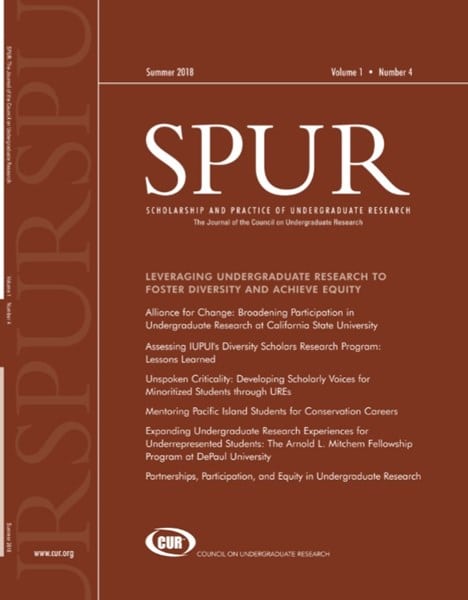SPUR (2018) 1 (4): https://doi.org/10.18833/spur/1/4/7
The authors reflect on their work in designing, executing, and evaluating undergraduate research experiences (UREs) that serve students of color, first-generation students, and low-income students. They assert that additional support is needed to prepare students as their cultures and identities intersect with their disciplinary learning and the historical context of the academy. The authors discuss the meaning of scholarly voice, the influence of minoritized cultures on that voice, the integration of their scholarly voice within the discipline, elements of programmatic design that intentionally create space, and experiences that promote a reflective scholarly journey for students. By infusing these elements into the faculty repertoire when mentoring students in UREs and into the framework and culture of UREs, students will be able to actively engage in graduate education from a place of integration and resiliency
More Articles in this Issue
No posts found


